![]()
![]()
![]()
Keynote & Plenary Speakers
(Speakers listed in name alphabet order)

Vincent W. S. Chan (IEEE/OSA
Fellow)
Joan and Irwin Jacobs Professor, MIT, USA
Keynote Talk
Title: Architecture for High Speed, Large Volume and Low Delay Data
Transport Networks
Time:
8:30-9:30AM, Wednesday, Jan. 30, 2013
Abstract:
Present-day networks are challenged by
dramatic increases in data rate demand of emerging applications. With the
advent of high speed fiber communicaitons with per wavelength transfer rate
of 100Gbps or more and free space optical links for close in interconects to
metropolitan area networks, high speed data transfer of ’elephant’ (large
volume) transactions are a reality within each cloud computing and storage
centers and inter-centers as well. To make full use of the technology of
optics and the very high data transfer rates, new network architectures from
the physical to the transport layer are needed. This talk will address new
network architectures that will make ’elephant’ transactions much more
efficient with much less network delays. Both free space and fiber
communication networks will be considered in a green field fashion to free
the architecture from any inefficiencies due to the costraints of previous
architectures and protocols. Substantial performance gains can be expected
for these new networks not just because the physical layer is faster but the
upper layer protocols are also much improved in preformance due to radicle
changes in architectures.
Biography:
Vincent W. S. Chan, the Joan and Irwin Jacobs Professor of EECS, MIT, received his BS(71), MS(71), EE(72), and Ph.D.(74) degrees in EE all from MIT. From 1974 to 1977, he was an assistant professor, EE, at Cornell University. He joined MIT Lincoln Laboratory in 1977 and had been Division Head of the Communications and Information Technology Division until becoming the Director of the Laboratory for Information and Decision Systems (1999–2007). He is currently a member of the Claude E. Shannon Communication and Network Group at the Research Laboratory of Electronics of MIT.
In July 1983, he initiated the Laser Intersatellite Transmission Experiment Program and in 1997, the follow-on GeoLITE Program. In 1989, he formed the All-Optical-Network Consortium among MIT, AT&T and DEC. He also formed and served as PI the Next Generation Internet Consortium, ONRAMP among AT&T, Cabletron, MIT, Nortel and JDS, and a Satellite Networking Research Consortium formed between MIT, Motorola, Teledesic and Globalstar. He has founded in 2009 and is serving as the Editor-in-Chief of a new IEEE/OSA Journal: Journal of Optical Communications and Networking. He is currently a Member of the Corporation of Draper Laboratory, the Technical Advisory Board of Mercury Computer and on the Board of Governors of the IEEE Communication Society as VP of Publications. He is also an elected member of Eta-Kappa-Nu, Tau-Beta-Pi and Sigma-Xi, the Fellow of the IEEE and the Optical Society of America.
Throughout his career, Professor Chan has spent his research focus on communication and networks, particularly on free space and fiber optical communication and networks and satellite communications. His work has led the way to a successful laser communication demonstration in space and early deployment of WDM optical networks. His recent research emphasis is on heterogeneous (satcom, wireless and fiber) network architectures with stringent performance demands.
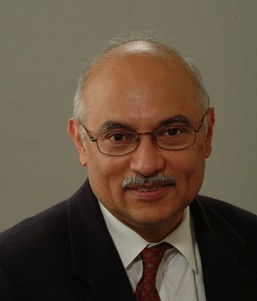
P. R. Kumar (NAE Member, IEEE Fellow)
Professor and College of Engineering Chair in Computer
Engineering,
Texas A&M University, USA
Keynote Talk
Title:
A
Clean Slate Approach to Secure Protocols for Wireless Networks
Time:
8:30-9:30AM, Tuesday, Jan. 29, 2013
Abstract:
Traditionally, wireless networks are designed for performance and
subsequently fortified for security.
As attacks are identified, defenses are developed by modifying the
protocols.
However, holistic quantifiable guarantees are not provided concerning the
security of the
complete system against other attacks.
We seek to reverse this paradigm.
We propose an axiomatic provable approach that guarantees security when the
capabilities of wireless nodes are subject to specified axiomatic
conditions.
It also leads to a complete protocol suite for the entire life-cycle
of the network, from primordial birth in a hostile environment where unknown
malicious nodes
are intermingled with good nodes, to a provably secure and nearly optimally
operating network.
[Joint work with Jonathan Ponniah and Yih-Chun Hu].
Biography:
P. R. Kumar is at Texas A&M University, in the Computer Engineering and
Systems Group of the Department of Electrical and Computer Engineering. He
received the SIGMOBILE Outstanding Contribution Award. He has worked on
problems in game theory, adaptive control, stochastic systems, simulated
annealing, neural networks, machine learning, queueing
networks, scheduling,
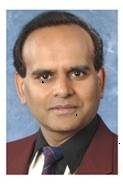
Nageswara S. V. Rao
(IEEE Fellow)
Corporate Fellow, Oak Ridge National Laboratory
Keynote Talk
Title:
Analytical and Experimental Methods for High-Performance Network Testing
Time:
8:30-9:30AM, Thursday, Jan. 31, 2013
Abstract:
There has been an increasing number of large-scale science and commercial
applications that produce large amounts of data, in the range of petabytes
to exabytes, which has to be transported over wide-area networks. Such data
transport capability requires high-performance protocols together with
complex end systems and network connections. A systematic analysis and
comparison of such data transport methods involves the generation of the
throughput profiles from measurements collected over connections of
different lengths. For such testing, the connections provided by production
networks and testbeds are limited by the infrastructures, which are
typically quite expensive. On the other hand, network emulators provide
connections of arbitrary lengths at much lower costs, but their measurements
only approximate those on physical connections. We present a differential
regression method to estimate the differences between the performance
profiles of physical and emulated connections, and then to estimate
``physical'' profiles from emulated measurements. This method is more
general and enables: (i) an objective comparison of profiles of different
connection modalities, including emulated and physical connections, and (ii)
estimation of a profile of one modality from measurements of a different
modality by applying a differential regression function. This method is
based on statistical finite sample theory and exploits the monotonicity of
parameters to provide distribution-free probabilistic guarantees on error
bounds. We present an efficient polynomial-time dynamic programming
algorithm to compute the underlying differential regression function. We
provide a systematic analysis of long-haul InfiniBand and TCP throughput
measurements over dedicated 10/40Gbps connections of several hindreds of
miles. These results establish the closeness of throughput profiles
generated over plain, encrypted, physical and emulated connections. In
particular, our results show that robust physical throughput profiles can be
derived using much less expensive emulations, thereby leading to significant
savings in cost and effort.
Biography:
Nageswara S. V. Rao is a Corporate Fellow in Computer Science and
Mathematics Division, Oak Ridge National Laboratory, where he joined in
1993. He has been on assignment at Missile Defense Agency as the Technical
Director of C2BMC Knowledge Center during 2008-2010. He received B.Tech
from National Institute of Technology, Warangal, India in Electronics and
Communications Engineering in 1982, M.E. in Computer Science and Automation
from Indian Institute of Science, Bangalore, India in 1984, and PhD in
Computer Science from Louisiana State University in 1988. He published more
than 300 technical conference and journal papers in the areas of sensor
networks, information fusion and high-performance networking. He is a Fellow
of IEEE, and received 2005 IEEE Technical Achievement Award for his
contributions to information fusion area. His research projects have been
funded by multiple federal agencies including National Science Foundation,
Department of Energy, Department of Defense, and Defense Advanced Research
Projects Agency.
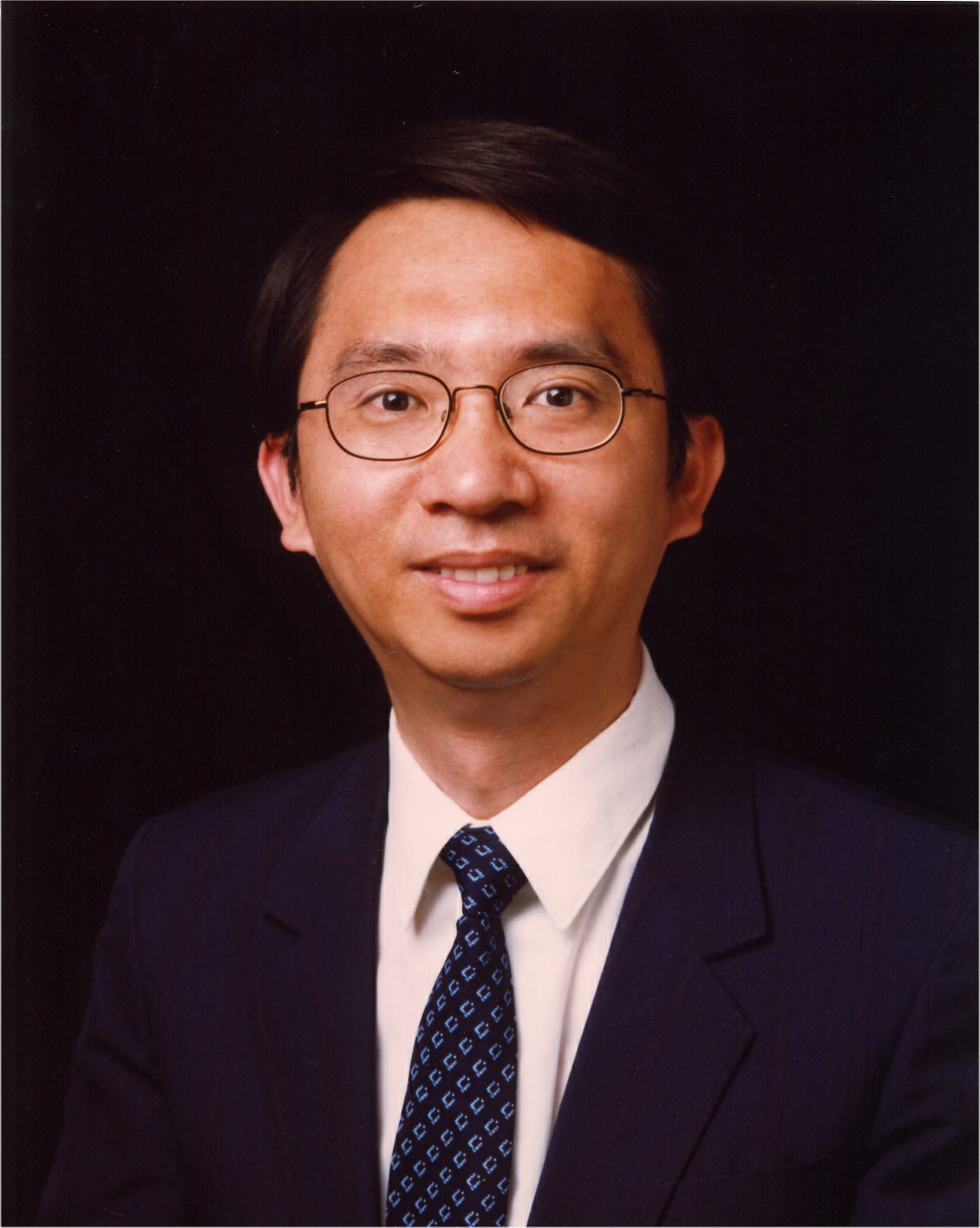
Shu-Ching Chen (ACM
Distinguished Scientist, SIRI Fellow)
Professor, Florida International University,
USA
Plenary Talk
Title:
Research and Challenges of Multimedia Data Management and Computing
Time:
14:30-15:30,
Thursday, Jan. 31, 2013
Abstract:
Technological advances in information technology, computational capability,
and communication networks have enabled large-scale data collection and
distribution of vast amounts of multimedia data available to consumer and
enterprise applications. Reliable and efficient tools and techniques are
urgently sought for multimedia data management and computing. Due to the
heterogeneous nature of multimedia data and their inherent spatial,
temporal, or spatio-temporal dimensions, it requires efficient analysis,
search, and retrieval of high-level semantic descriptions for multimedia
data. In this talk, I will introduce the research and challenges of
multimedia data management and computing, ranging from multimedia data
processing to indexing, query, retrieval, and presentation. Specifically, a
set of core techniques, such as multimedia data analysis, content-based
image/video retrieval, visualization, and multimedia data mining, will be
discussed. In addition, I will present several real-world multimedia
applications in disaster information management.
Biography:
Dr. Shu-Ching Chen is a Full Professor in the
School of Computing and Information Sciences (SCIS), Florida International
University (FIU), Miami since August 2009. Prior to that, he was an
Assistant/Associate Professor in SCIS at FIU from 1999. He received Master's
degrees in Computer Science, Electrical Engineering, and Civil Engineering
in 1992, 1995, and 1996, respectively, and the Ph.D. degree in Electrical
and Computer Engineering in 1998, all from Purdue University, West
Lafayette, IN, USA. He is the Director of Distributed Multimedia Information
Systems Laboratory and Associate Director of The Center for Advanced
Distributed System Engineering at SCIS.
His main research interests include
content-based image/video retrieval, distributed multimedia database
management systems, multimedia systems, and Disaster Information Management.
Dr. Chen has authored and coauthored more than 250 research papers and
two books.
Dr. Chen was named a 2011 recipient of the ACM Distinguished Scientist Award. He received the best paper award from 2006 IEEE International Symposium on Multimedia. He was awarded the IEEE Systems, Man, and Cybernetics (SMC) Society’s Outstanding Contribution Award in 2005 and was the co-recipient of the IEEE Most Active SMC Technical Committee Award in 2006. He was also awarded the Inaugural Excellence in Graduate Mentorship Award from FIU in 2006, the University Outstanding Faculty Research Award from FIU in 2004, the Excellence in Mentorship Award from SCIS in 2010, the Outstanding Faculty Service Award from SCIS in 2004, and the Outstanding Faculty Research Award from SCIS in 2002. He has been a General Chair and Program Chair for more than 35 conferences, symposiums, and workshops. He is the founding Editor-in-Chief of International Journal of Multimedia Data Engineering and Management and Associate Editors/Editorial Board for other 15 journals. He is the Chair of IEEE Computer Society Technical Committee on Multimedia Computing and Co-Chair of IEEE Systems, Man, and Cybernetics Society’s Technical Committee on Knowledge Acquisition in Intelligent Systems. He is a steering committee member of IEEE Transactions on Multimedia. He also serves/served as a member of technical program committee for more than 200 professional meetings. He is a fellow of SIRI.
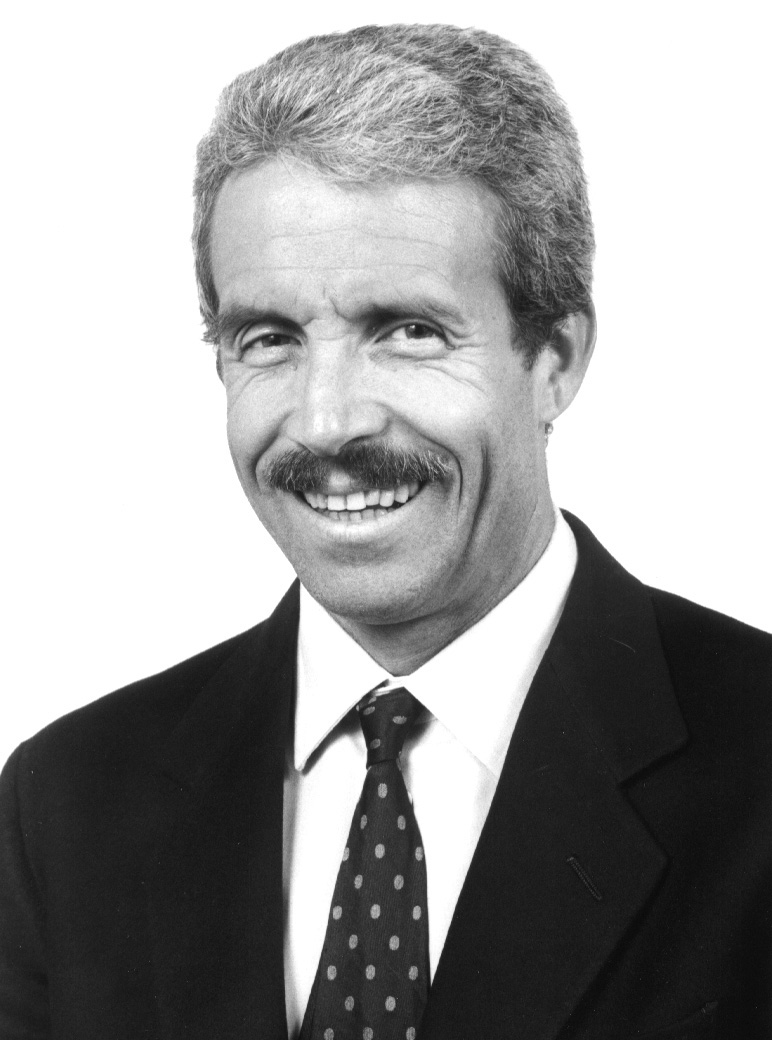
Mario Gerla
(IEEE Fellow)
Professor, University of California, Los Angeles, USA
Plenary Talk
Title: Vehicle Cloud Computing
Time:
13:30-14:30,
Thursday, Jan. 31, 2013
Abstract:
TBA
Biography:
Dr. Mario Gerla is a Professor in the Computer Science Dept at UCLA.
He holds an Engineering degree from Politecnico di Milano, Italy and the
Ph.D. degree from UCLA. He became IEEE Fellow in 2002. At UCLA, he was part
of the team that developed the early ARPANET protocols under the guidance of
Prof. Leonard Kleinrock. He joined the UCLA Faculty in 1976. At UCLA he has
designed network protocols including ad hoc wireless clustering, multicast (ODMRP
and CODECast) and Internet transport (TCP Westwood). He has lead the ONR
MINUTEMAN project, designing the next generation scalable airborne Internet
for tactical and homeland defense scenarios. He is now leading several
advanced wireless network projects under Industry and Government funding.
His team is developing a Vehicular Testbed for safe navigation, content
distribution, urban sensing and intelligent transport. Parallel research
activities are wireless medical monitoring using smart phones and cognitive
radios in urban environments.
He has
served as a Technical Program Committee member of many international
conferences, and is active in the organization of conferences and workshops,
including MedHocNet and WONS. He serves on the IEEE TON Scientific Advisory
Board. He was recently recognized with the annual MILCOM Technical
Contribution Award for 2011 and the IEEE Ad Hoc and Sensor Network Society
Achievement Award in 2011.
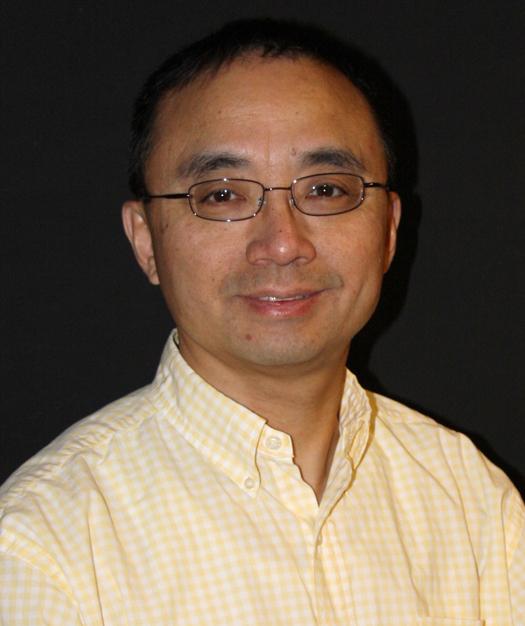
Huan Liu
(IEEE Fellow, ACM Distinguished Scientist)
Professor, Arizona State University, USA
Plenary Talk
Title: Understanding Behavior in a Networked World via Social Media Data
Time:
14:30-15:30,
Wednesday, Jan. 30, 2013
Abstract:
TBA
Biography:
Dr. Huan Liu is a professor of Computer Science and Engineering at Arizona
State University. He obtained his Ph.D. in Computer Science at University of
Southern California and B.Eng. in Computer Science and Electrical
Engineering at Shanghai JiaoTong University. Before he joined ASU, he worked
at Telecom Australia Research Labs and was on the faculty at National
University of Singapore. He was recognized for excellence in teaching and
research in Computer Science and Engineering at Arizona State University.
His research interests are in data
mining, machine learning, social computing, and artificial intelligence,
investigating problems that arise in many real-world, data-intensive
applications with high-dimensional data of disparate forms such as social
media. His well-cited publications include books, book chapters,
encyclopedia entries as well as conference and journal papers. He serves on
journal editorial boards and numerous conference program committees, and is
a founding organizer of the International Conference Series on Social
Computing, Behavioral-Cultural Modeling, and Prediction (http://sbp.asu.edu/).
He is an IEEE Fellow and an ACM Distinguished Scientist. Updated information
can be found at
http://www.public.asu.edu/~huanliu

Ajay Luthra
(Motorola Dan Noble Fellow)
Vice President, Motorola Mobility, USA
Plenary Talk
Title: Evolution of
Digital Video Compression - from Primordial Soup to Homo sapiens
Time:
13:30-14:30,
Wednesday, Jan. 30, 2013
Abstract:
Over the last couple of decades, digital video and audio compression technologies have fundamentally changed and revolutionized the way we create, communicate, and consume audio-visual information. They have not only transformed existing applications and services like the distribution of entertainment video to the home but also spawned brand new industries and services like video-conferencing, direct-to-home satellite distribution, digital video recording, video on demand services, high-definition TV, video on mobile devices, streaming video, etc. They have also breathed new life and meaning to peer-to-peer resource sharing and made their presence felt from Hollywood to the lawmakers.
This presentation will provide an overview of Digital Video Compression – its past, present and future applications and technology. Why is it needed and where it is going will be presented. The pivotal role played by the international video coding standards such as H.261, MPEG-1, MPEG-2 / H.262, H.263, MPEG-4 Part 2 and AVC (MPEG-4 Part 10/H.264) since the early 1990s, when the technology was in its infancy, will also be discussed. These standards have been crucial in spreading the technology like wildfire by providing the power of interoperability among products while at the same time allowing enough room for ingenuity to mold the technology to fit a given application. They have made compress-once-and-display-anywhere a reality and created the economy of scale to achieve steep reduction in cost for the masses to be able to afford the technology.
We will also talk about the status of the latest video coding standard known as HEVC (High Efficiency Video Coding) and its extensions. Their possible impact on various digital video communication, networking and storage applications will also be discussed.
Biography:
Ajay Luthra is Vice
president, Fellow in the Advanced Technology Group of Motorola Mobility. In
this role, he is responsible for advanced technology and new product
concepts and prototypes development work in the areas of Digital Video
Compression & Processing, Streaming Video, Multi-Screen Video Distribution,
3D TV, Cable Head-End system design, Advanced Set Top Boxes and Home
Networking. He has led the development of several new digital video encoding
and transcoding technologies and new product designs using those
technologies. One of those designs won Innovation 2010 Design and
Engineering Award Honoree recognition in CES 2010.The product version
(Motorola Televation) of that concept, architecture and design also won Best
New Cable Product at Light Reading Leading Lights Awards in 2011. It also
won Communications Technology Platinum Award in 2011 in Multi-Screen Video
Solution or Deployment category. Before joining Motorola, he served as a
Director, Communication and Video Systems Lab (1990-1995) for Tektronix and
a manager for the DSP Group (1985-1990).
He has been an active member of MPEG committee for twenty years where he has chaired several technical groups and pioneered the MPEG-2 extensions for studio applications. He was associate rapporteur/vice-chair of Joint Video Team (JVT), consisting of ISO/MPEG and ITU-T/VCEG experts, which developed AVC/H.264 video coding standard. He and JVT were recognized by an ATAS Prime Time Emmy Engineering Award and NATAS Technology & Engineering Emmy Award for the development that standard. He was also the US Head of Delegates (HoD) to MPEG and chair of INCITS/L3.1 committee from 2004 to 2011. He is currently actively involved in High Efficiency Video Coding (HEVC) standard and technology development. He was an Associate Editor of IEEE Transactions on Circuits and Systems for Video Technology (2000-2002) and also a Guest Editor for its Special Issues on H.264/AVC Video Coding Standard, July 2003 and Streaming Video, March 2001.
He holds more than 40 patents and several more are pending. He received Motorola’s Master Innovator award in 2010, Patent of the Year award in 2007 and Distinguished Innovator award in 2003. He was named Motorola Dan Noble Fellow in 2003. Dr. Luthra holds Ph.D. from Moore School of Electrical Engineering, University of Pennsylvania, Philadelphia, USA, M.Tech. in Communications Engineering from IIT Delhi, India and B.E. (Hons) from BITS, Pilani, India.
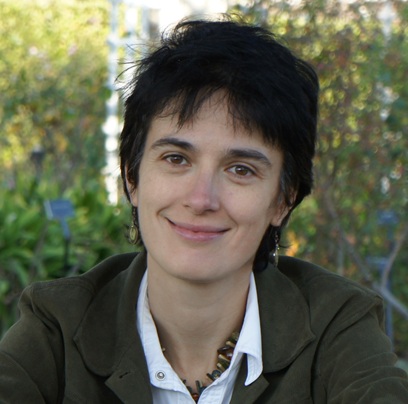
Mihaela van der Schaar (IEEE
Fellow)
Chancellor's Professor, University of California, Los Angeles, USA
Plenary Talk
Title: Strategic Design: Tripling the Spectrum Efficiency
Time:
13:30-14:30,
Tuesday, Jan. 29, 2013
Abstract:
TBA
Biography:
Mihaela van der Schaar is Chancellor's Professor of
Electrical Engineering at University of California, Los Angeles. Her
research interests include engineering economics and game theory, dynamic
multi-user networks and system designs, wireless networks, online learning,
multimedia networking, communication, processing, and systems, and stream
mining. She is an IEEE Fellow, a Distinguished Lecturer of the
Communications Society for 2011-2012, the Editor in Chief of IEEE
Transactions on Multimedia and a member of the Editorial Board of the IEEE
Journal on Selected Topics in Signal Processing. She received an NSF CAREER
Award (2004), the Best Paper Award from IEEE Transactions on Circuits and
Systems for Video Technology (2005), the Okawa Foundation Award (2006), the
IBM Faculty Award (2005, 2007, 2008), the Most Cited Paper Award from
EURASIP: Image Communications Journal (2006), the Gamenets Conference Best
Paper Award (2011) and the 2011 IEEE Circuits and Systems Society Darlington
Award Best Paper Award. She received three ISO awards for her contributions
to the MPEG video compression and streaming international standardization
activities, and holds 33 granted US patents. For more information about her
research visit:
http://medianetlab.ee.ucla.
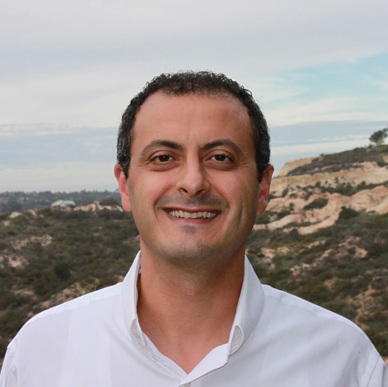
Mehmet Yavuz
Senior Director, Qualcomm, USA
Plenary Talk
Title: 1000x Capacity
Gain by Small Cell Densification
Time:
14:30-15:30,
Tuesday, Jan. 29, 2013
Abstract:
As mobile data demand
continues to increase due to existing and emerging devices and applications,
mobile networks need to prepare for 1000X traffic growth over the next
decade. Beyond 4G LTE deployments with new spectrum, further network
densification using picocells, open access neighborhood femtocells and
relays will be the key solution for this challenge. This talk will cover
challenges in increasing the small cell density and present solutions
including SON and mobility management.
Biography:
Mehmet Yavuz is Senior Director with Corporate Research and Development at
Qualcomm where he currently leads the femtocell systems engineering program
developing SON and interference management methods. At Qualcomm, since 2003,
he has also worked on system design and performance improvement of wireless
networks such as 1xEVDO and HSPA+. Prior to Qualcomm he worked on signal
processing and inverse problems during 1997-1999 at General Electric Global
Research Center. From 1999 to 2003 he worked on many aspects of cellular
system design as part of CDMA System Research and Development group at
Nortel Networks. In 2009 Mehmet received Distinguished Contributor Award
from Qualcomm CR&D for his technical contributions to the department. In
2011 he received Femto Forum Chairman's Industry Award for his contributions
to Femto Forum (now called Small Cell Forum). He received B.Sc. degree from
Middle East Technical University, Turkey and the M.S. and Ph.D. degrees in
Electrical Engineering: Systems from the University of Michigan, Ann Arbor.